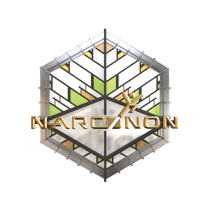Alcohol Intervention and Having a Successful Intervention

An alcohol intervention is a professionally led meeting with the help of an interventionist to discuss a loved one’s drinking behaviors and how it impacts them and the people around them. When someone’s drinking patterns begin to worsen, it becomes a danger to themselves and others. The goal of an alcohol intervention is to encourage the alcoholic to seek the proper treatment they need.
Alcoholism becomes progressively worse, and an intervention is an opportunity for the person to recognize and get treatment for their alcohol addiction. Some interventions occur when severe or life-threatening problems arise or when people around the alcoholic begin to notice the warning signs and intervene. Unfortunately, most alcoholics do not admit they have a problem, but they secretly know their drinking has become problematic. Getting a person to admit they have an addiction and accept help is not easy, but it is not impossible.
Tips for a Successful Alcohol Intervention
The primary goal of an alcohol intervention is to motivate your loved one to seek treatment. Most alcohol intervention concludes on a positive note with the person accepting help and going to alcohol addiction rehab. The first step is to contact a professional interventionist because they have the knowledge and training to help the family through the process. Certified interventionists provide families with a significant amount of knowledge and preparation, so the intervention goes right.
Simply performing an intervention on the spot without any planning or preparation does not make it successful. Using the intervention to express anger or frustration towards the alcoholic will not convince them to get help. It is unrealistic to expect the person to be agreeable and amenable to all the intervention team’s suggestions. During the intervention’s initial planning, everything is rehearsed and planned, and every letter to the addict from each family member participating is written with a specific purpose.
The family should not view the intervention as a method to force the person into treatment against their will. The process of intervention persuades them and helps them see the impact of their addiction. Finally, an intervention should never be viewed as a last resort by friends or family who may be waiting for the addict to hit “rock bottom.” We never know where rock bottom is, and more often, rock bottom means jail or death. If an alcoholic keeps on drinking despite the consequences, an alcohol intervention is needed. An intervention for alcoholism could be done at any time, and the earlier it is, the better. Treating alcoholism with rehabilitation is the only way to help an alcoholic recover.
Alcohol Addiction Treatment Should be Well-Rounded

The process of treating alcohol addiction should involve a well-rounded approach. Most alcoholics require medical detox or medically supervised withdrawal management. However, standard detox is also an option if the person is not experiencing dangerous withdrawal symptoms. Long-term residential rehabilitation is the best approach, but not every alcoholic is willing, which is why alcohol intervention is essential. Rehabilitation should help a person physically, mentally, and even spiritually, and a professional interventionist has the resources to guide the family in the right direction.
The Scope of Alcohol Addiction Globally
According to the World Health Organization, globally:
Three million deaths every year result from harmful alcohol use, which represents 5.3% of all deaths. The harmful use of alcohol is a causal factor in more than 200 disease and injury conditions.
Approximately 5.1% of global disease and injury are attributable to alcohol. Additionally, alcohol consumption causes death and disability relatively early in life.
Among those aged 20 to 39 years, approximately 13.5% of the total deaths are alcohol-attributable.
Along with individual harm, significant social and economic losses occur both to individuals and society.
About Newman Intervention Services
In 2016, the author founded Newman Intervention Services to help families in crisis by managing their addicted loved ones’ arrivals in drug rehabilitation. He currently travels all over the United States and internationally to aid in ending the conflict, trauma, and loss that accompanies addiction to drugs or alcohol. Before founding Newman Intervention Services, Newman spent the prior 15 years working in addiction recovery and prevention, educating more than 135,000 people on the life-threatening danger of drug or alcohol use.
Sources:
https://www.who.int/news-room/fact-sheets/detail/alcohol


